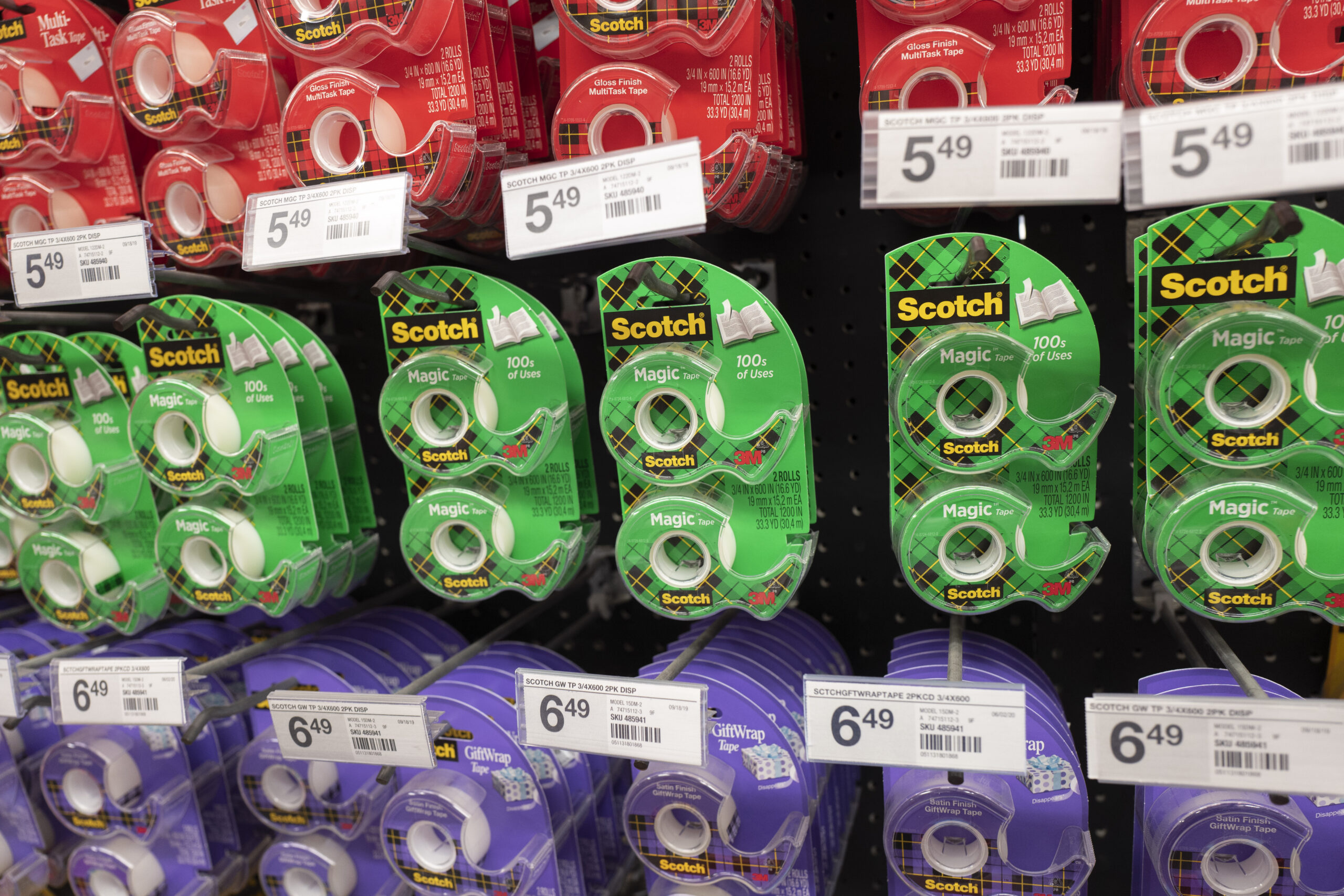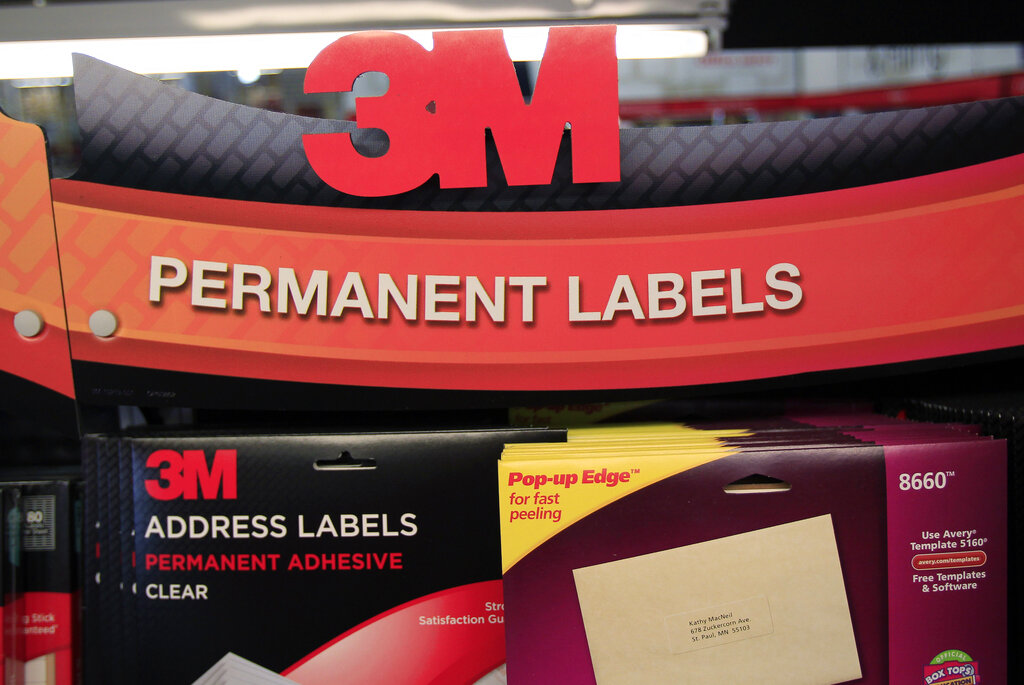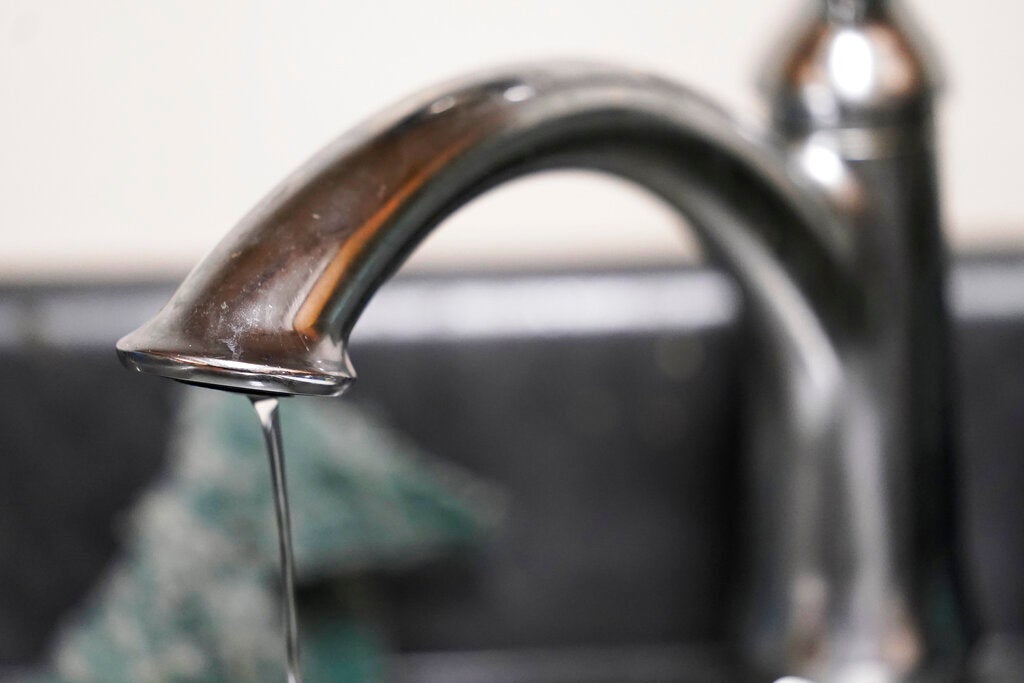The global manufacturing giant 3M operates four plants in Wisconsin communities and appears to be struggling, according to a recent report in the Wall Street Journal.
This summer, the company known for Post-it notes settled lawsuits equating to nearly half of its annual sales.
The company reached a $10 billion settlement in June over its production of toxic chemicals and then a $6 billion settlement two months later over its earplugs.
News with a little more humanity
WPR’s “Wisconsin Today” newsletter keeps you connected to the state you love without feeling overwhelmed. No paywall. No agenda. No corporate filter.
Wall Street Journal reporter John Keilman covers U.S. manufacturing. Keilman recently appeared on Wisconsin Public Radio’s “The Morning Show” to discuss 3M’s future. While the company announced 8,500 layoffs this year, Keilman said he was unaware of plans to shutter any plants.
The following was edited for clarity and brevity.
Kate Archer Kent: 3M is a $34 billion company with locations around the globe, including four here in Wisconsin. You write 3M is in a dry spell. How so?
John Keilman: 3M is a company that relies on a very broad array of products to make money — anything from sandpaper to N95 masks to air filters to all sorts of adhesives to Post-it notes, command strips, you name it. They have more than 55,000 different products.
But they are in a continual race against not only their competitors but sort of technological changes.
As their competitors catch up and as their products become more commoditized, they always have to come up with something new. According to some investors and people who work at the company or who recently left the company, they are falling behind in that race.
KAK: This summer, 3M agreed to pay $10.3 billion to American cities and towns, including Wisconsin, over contaminated drinking water with toxic PFAS. What is 3M’s role in that litigation, in PFAS pollution and how it affects their products now?
JK: They are being sued for the chemicals that they produced and for the firefighting foam that they produced. The heart of this current litigation is these firefighting foams were used all over and once (PFAS were used in an active fire or for training), they would get into the soil or the groundwater and ultimately work their way into drinking water.
KAK: Did 3M know that this class of chemicals, that 3M helped develop in the 1940s, were dangerous when they put them in their products?
JK: That is certainly being alleged by the people who are suing them. I should say it is 3M’s position that these chemicals can be made and used safely.
KAK: As of last year, 3M had more than 90,000 employees and at least hundreds here in Wisconsin. Is 3M in danger of closing any operations?
JK: I think this year 3M announced 8,500 layoffs and that goes with several other rounds of layoffs that have happened in recent years. They have not, as far as I know, announced that it plans to shut down particular facilities but that certainly is a danger when business conditions deteriorate.

KAK: This summer, 3M settled lawsuits with American military veterans and service members who say they suffered hearing loss from using the company’s earplugs. Can you explain what’s going on in this lawsuit?
JK: 3M bought a company in the 2000s that made these earplugs. What was special about them was they were supposed to filter out really loud noises like explosions… while still allowing you to hear someone speaking close by.
The allegation was that they did not work properly and that people and veterans suffered hearing damage because of that. 3M disputed that, of course, and they ultimately ended up settling the case for $6 billion.
KAK: Do you find that there was strain from that lawsuit put on the business?
JK: It’s going to be a financial strain, because they’re going to have to pay that off over the coming years. Any time you have as much litigation as 3M has been facing that is a distraction for the top people at the company — instead of thinking about how can we outcompete our peers in electric vehicles, for example, or how can we come out with a new product that nobody has ever seen before.
So much of their time is spent dealing with this litigation. It’s not spent on how to further their business.
KAK: You write about 3M’s new innovations that are in the works. What is 3M’s research into electric vehicle technology?
JK: This is something that would seem to suit 3M very well. At their heart, they are a materials company. They are doing a lot of work into, for example, materials that will help electric vehicle batteries work more efficiently. Any time they have a call with investors or speak at a conference or something like that, that’s the one area that they always point to.
Last year, (their electric vehicle technology sector) grew 30 percent to hit $500 million in sales. In the overall picture, that’s still pretty small, but they could point to that as an area of very substantial growth. But that is also an area that practically every company under the sun is looking at — electric vehicles.
Wisconsin Public Radio, © Copyright 2026, Board of Regents of the University of Wisconsin System and Wisconsin Educational Communications Board.





